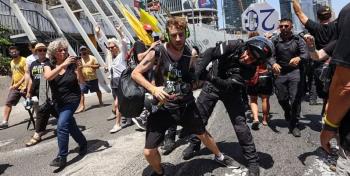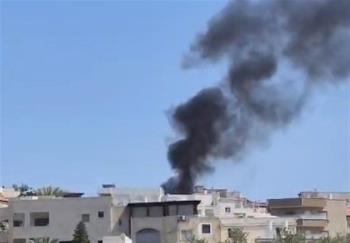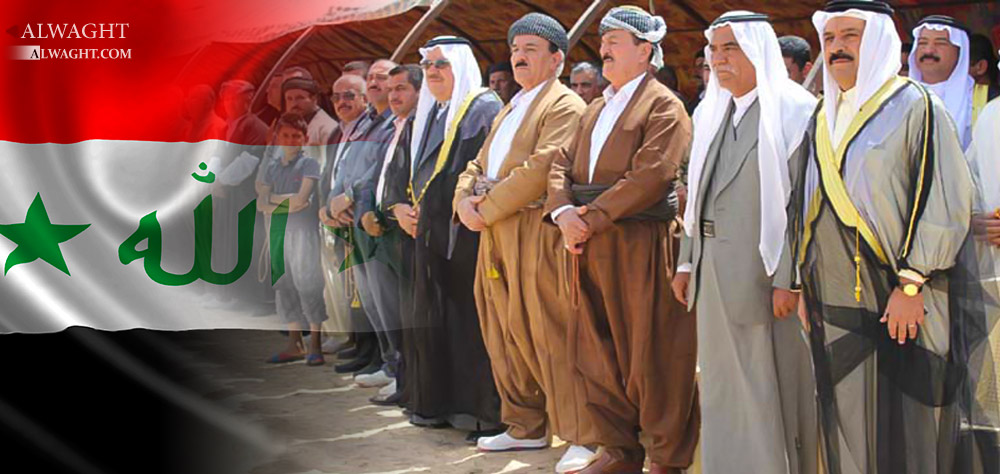World FactBook on Iraq listed the ethnic breakdown of the population (accessed July 19, 2007):
"Ethnic Groups: Arab 75%-80%, Kurdish 15%-20%, Turkoman, Assyrian or other 5%"
Arab
The Joshua Project, a non-profit Christian research organization, explained in its website section on Arab Iraqis (accessed July 23, 2007):
"The Iraqi Arabs descended from a people group cluster called the Levant Arabs. The Levant Arabs originally settled all over the Arabian Peninsula and later migrated to North Africa. They are spread from Israel to Kuwait and as far east as Iran. 'Levant' is a broad term that includes several groups of Arabs: the Iraqi, Jordanian, Palestinian, Arabic Jewish, Chaldean, and Syrian Arabs.
Most scholars consider Arabs from the Arabian Peninsula to be the original Arabs. The Arabian culture was developed by tribes of nomads and villagers who lived in the Arabian Desert for many centuries. It was also from there that Arab migrations began, eventually leading to the expansion of the Arab world...
Today three-fourths of Iraq is Arab."
Kurd
Jefferson Morley, writer for the Washington Post, wrote in his June 19, 2003 article "Who Are the Kurds?":
"The Kurds are an ethnic group of an estimated 25 million people. They live in the mountainous region covering eastern Turkey, northern Iraq, northern Syria and northwestern Iran. Approximately 12 million live in Turkey; another 3.5 million in Iraq, and the rest in Iran and Syria.
The tribal lands of the Kurds, known to inhabitants as Kurdistan, were divided up by colonial powers, Great Britain and France, after World War I. The Kurds became a minority in Turkey, Iraq and Iran. In all three countries, their ambitions for national independence were regarded as threatening. In all three countries, the Kurds advocating independence have faced prosecution for decades.
Kurdish rebels fought the Iraqi government in the early 1970s when Hussein was the second most powerful man in Baghdad. But when neighboring Iran, Israel and the United States withdrew support in 1975, the Kurdish guerilla movement collapsed. When the Kurds joined Iran's war against Iraq in the 1980s, Hussein responded by using poison gas on the residents of the Kurdish town of Halabja in March 1988, killing an estimated 5,000 people. He forced Kurdish residents out of Kirkuk, a traditionally Kurdish city in Northern Iraq, and brought in Arabs to take over their property."
Turkoman
Nermeen al-Mufti, Co-Director of the Occupation Watch Center in Iraq, wrote in his June 25, 2003 article titled "Turkomans Under Threat," published by the Institute for War & Peace Reporting:
"Turkomans, found mostly in the northern and central regions of Iraq, are the third largest ethnic group in Iraq after Arabs and Kurds. Originally from Central Asia, they began settling in Iraq thousands of years ago in a migration that took place over several hundred years. They have ruled the country six times since establishing their first state in no rthern Iraq around 600 BC.
The exact number of Turkomans today is a matter of dispute with Iraqi Kurds, who claim that Kirkuk and its environs is a Kurdish region. Based on a 1957 figure of 590,000 Turkomans in an overall population of six million, this would suggest that Iraq today has some two million Turkoman citizens. Roughly half of them live along an arc of land on the fringe of the Kurdish mountains, in the provinces of Mosul, Erbil and Kirkuk."
Assyrian
Sami Zubaida, MA, Emeritus Professor of Politics and Sociology at the University of London, stated in his July 2000 Nations and Nationalism article "Contested Nations: Iraq and the Assyrians":
"The Assyrians were mountainous people mostly from the region of Hakkari, now in Turkish Kurdistan, but some were from Urmiyah in Iran. Their language is Syriac, a dialect of Aramaic. The are Nestorian Christians, headed by a hereditary patriarch...
Some [Assyrians] remain in Iraq, a few in the Kurdish provinces. There are no accurate population figures, but estimates put their number at 100,000 out of a Christian population estimated at 1 million...Those in the northern provinces are mostly peasants and in small business, as well as some functionaries and soldiers. A Christian elite in Baghdad and the main cities enjoy a degree of integration and participation in the professions, business and state employment, even in politics...
Like all other Middle Eastern Christians, the Assyrians have been migrating in large numbers to Europe, the US and Australia. Diaspora Assyrians now outnumber those staying in Iraq."
Source: usiraq.procon.org



























